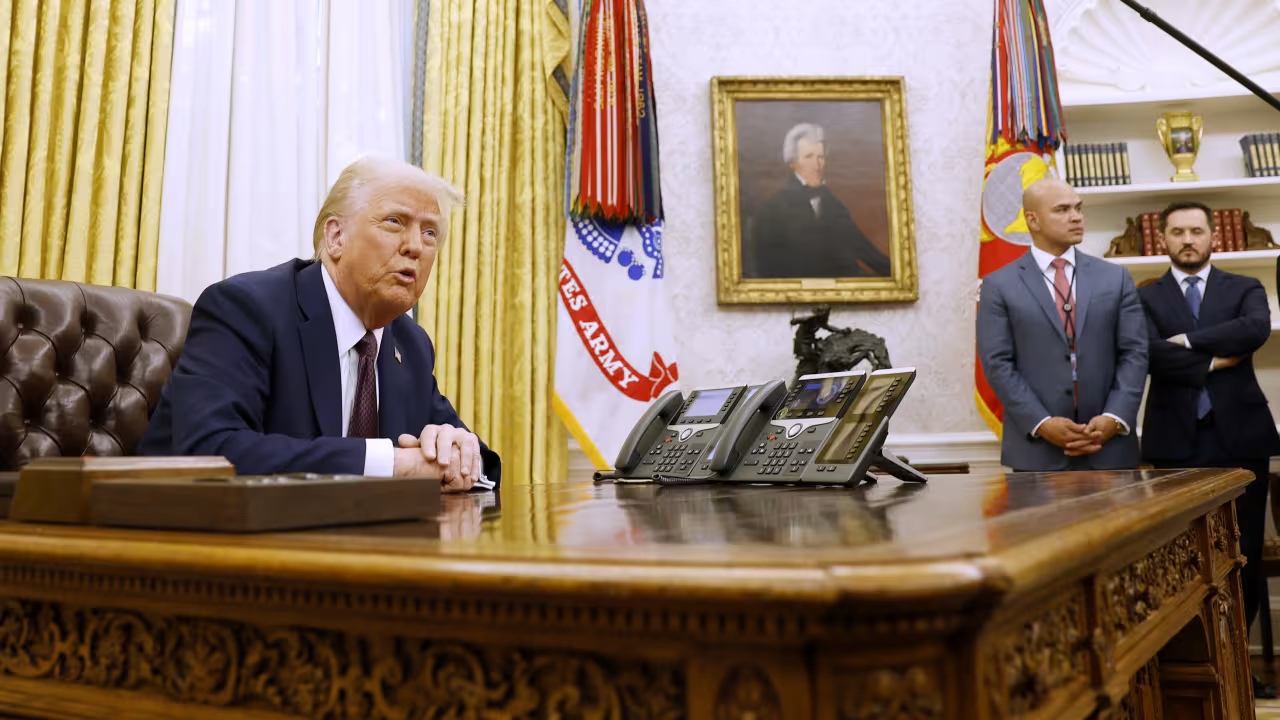
President Trump said he expected that steps by his administration to reduce energy prices would make it possible to keep a lid on inflation and bring interest rates down.
“I’d like to see oil prices come down, and when the energy comes down, that’s going to knock out a lot of the inflation,” he told reporters in the Oval Office on Thursday. “That’s going to automatically bring the interest rates down.”
The Federal Reserve cut its benchmark short-term interest rate three times between September and December by a full percentage point. But longer-term interest rates rose during that period, partly reflecting expectations of stronger growth.
The episode underscored how the Fed controls short-term interest rates but market forces influence long-term interest rates, which are closely tied to rates on mortgages, auto loans and business debt. Long-term rates can rise even if the Fed is cutting rates if investors anticipate fewer Fed rate cuts, if they are more concerned about inflation, or if they are more optimistic about future economic activity.
Trump told reporters he would like to see rates “come down a lot” and implied that steps to keep a lid on price pressures were an important precursor to lower interest rates. In his first term, inflation wasn’t a major problem, and Trump frequently called for the Fed to lower interest rates.
Trump repeated his longstanding view that he understands interest-rate policy better than the Fed and its chair, Jerome Powell. “If I disagree, I will let it be known,” he said.
The president said he hadn’t spoken with Powell. “At the right time, I will,” he said.
Trump appointed Powell to serve as Fed chair beginning in 2018 but quickly soured on his choice and repeatedly chastised the central bank and its leader during his first term. Former President Joe Biden reappointed Powell to a second four-year term that started in 2022.
Trump’s nominee to serve as Treasury secretary, Scott Bessent, told lawmakers at his confirmation hearing last week that he believed the central bank should remain independent from White House interference on its monetary-policy decisions.
Bessent said then that Trump’s public commentary on interest rates was no different from that of Democratic senators who urged the Fed last year to lower interest rates. “President Trump is going to make his views known as many senators did,” Bessent said.
The president’s ability to influence monetary policy runs primarily through the appointment process. The Fed’s seven-member board currently has no vacancies. Michael Barr, a Fed governor who also holds the position of vice chair of banking supervision, this month said he will give up the regulatory post while remaining on the board.
Trump will be able to name a new chair of the board in May 2026, when Powell’s term expires. He will be able to name a new governor early next year, when the term of governor Adriana Kugler ends.


